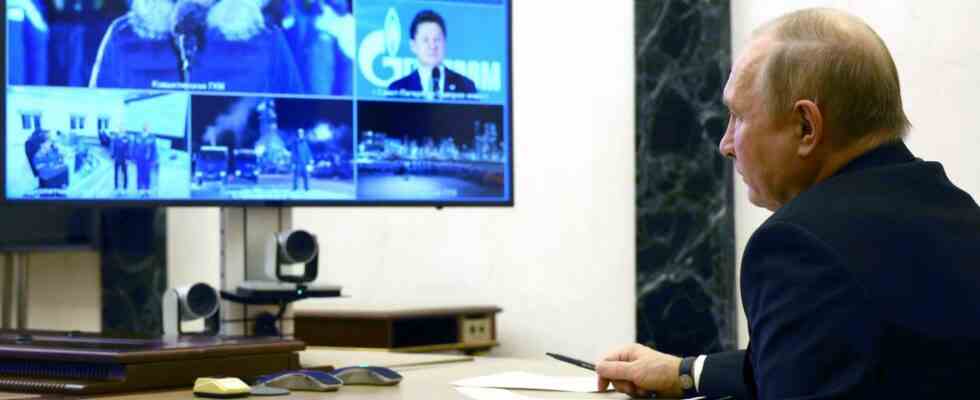The tussle between Moscow and the West over Russian oil exports is becoming clearer – and everything suggests that it will be long. Tuesday, December 27, the Kremlin responded to the price cap mechanism adopted earlier this month by the European Union (EU), the G7 and Australia.
A ukase signed by Vladimir Putin prohibits the sale of Russian oil to all entities (“foreign legal persons and other individuals”) that would comply with this mechanism. This prohibition will come into force on 1er February 2023, and is expected to run until 1er july.
The western cap was decided on December 5. It prohibits European, American, British, Canadian, Japanese and Australian companies from providing services allowing the maritime transport (freight, insurance, etc.) of Russian oil to third countries in the event that the price exceeds the ceiling of 60 dollars (56 euros ) barrel.
This decision, which kyiv or Warsaw had considered too modest – the ceiling price being close to the price of Russian oil, Ural crude, at 65 dollars a barrel -, completes a more radical measure: the complete embargo on Russian crude that these countries apply to them- themselves, which also entered into force on 5 December. The objective in both cases is to reduce Moscow’s ability to finance its “special operation” in Ukraine.
Reorientation of global oil geopolitics
The Russian side had first responded, at the end of last week, by threatening to reduce its production, at the beginning of 2023, by 500,000 to 700,000 barrels per day (about 5% to 7% of the total), to drive up prices. . The presidential ukase signed on Tuesday therefore constitutes the second stage of this response to Western offensives. If it confirms, without surprise, the will of the Kremlin not to yield anything, the observers, Russian side, insist rather on its limited character. Point 4 of the document opens the door to exemptions, by presidential decision. The Europeans had also hinted at possible relaxations.
Next, the text refers to entities trading on the basis of contracts that explicitly mention the Western cap – in other words, these entities – national companies of third countries or Western intermediaries – could, in order to escape the Russian ban, respect the Western cap without display it openly.
Unprecedented, these respective sanctions, however, have a scope that is still difficult to measure. While Moscow is looking for other outlets for its crude, Westerners are turning to other suppliers. A reorientation of global oil geopolitics is at work, with more Russian black gold flowing to Asia and more European imports coming from the United States, the Middle East or Africa.
You have 45.19% of this article left to read. The following is for subscribers only.

